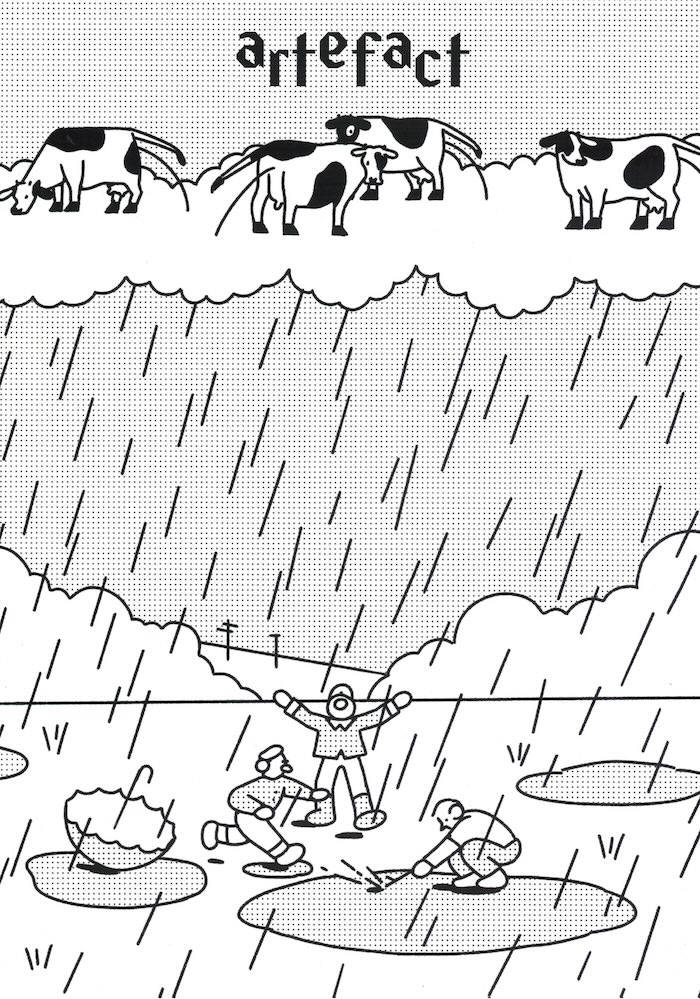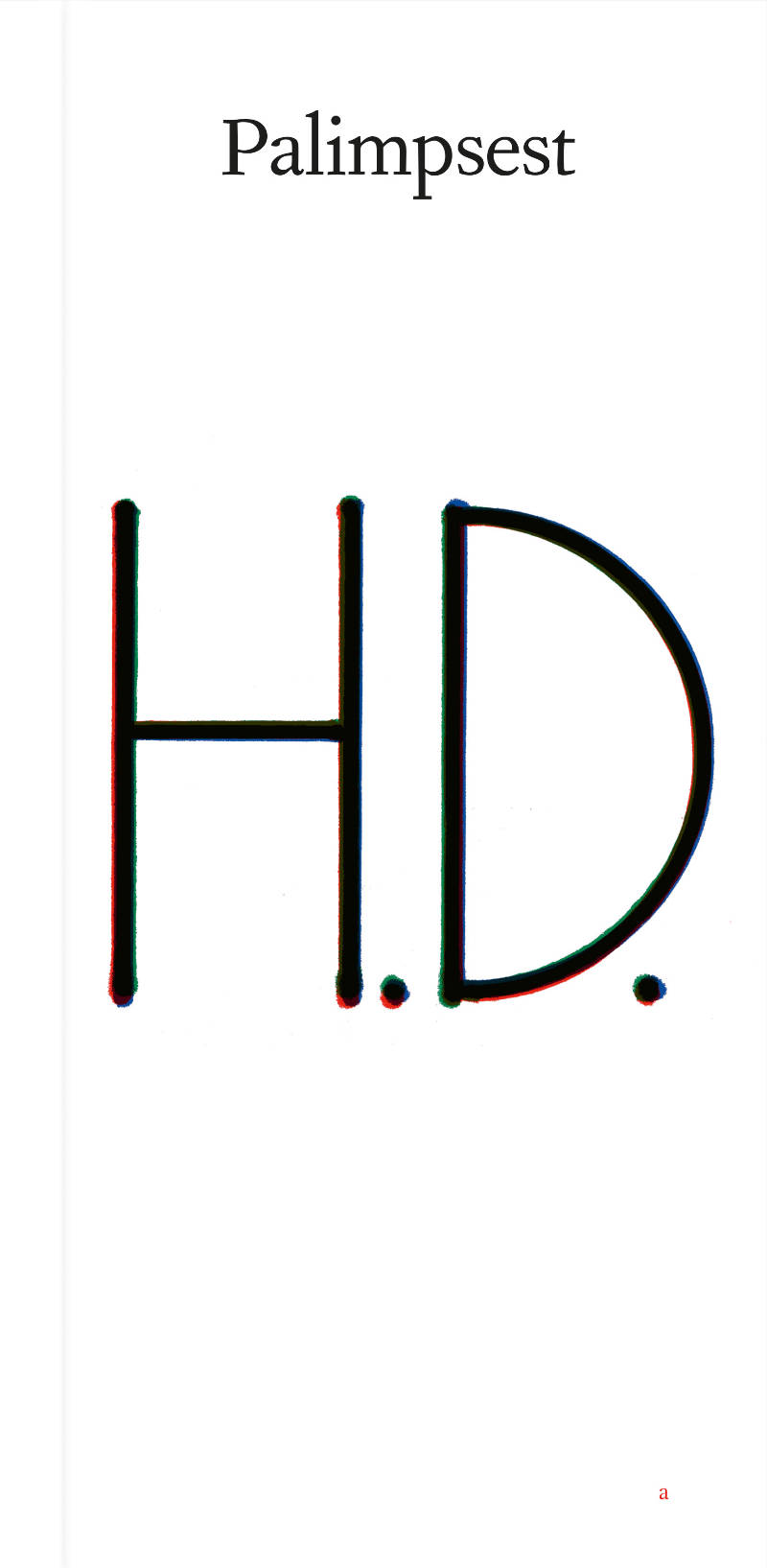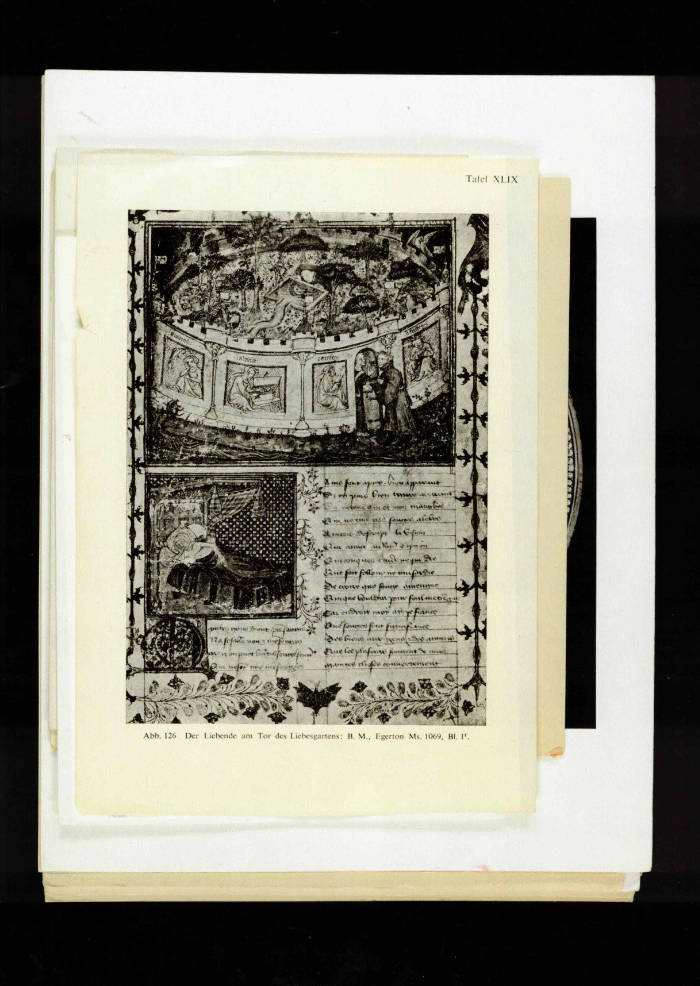
Be Here Now
Language: English

Language: English

"Cet ouvrage est un magazine participatif regroupant les oeuvres de 48 artistes autour d'un thème commun, l'artefact. Vertige du passé ou projection contemporaine, l'artefact nous parle. Il raconte les cultures, en façonne le souvenir et promet ainsi un voyage à travers les créations humaines. Ce sont ces témoignages tangibles de l'existence que nous souhaitons vous offrir grâce aux interprétations captivantes de l'artefact. Chaque page de ce nouveau numéro est une invitation à plonger dans les méandres de l'histoire ou de la fiction, à explorer les différentes strates de l'humanité à travers le primes de ses réalisations matérielles."
Alexandre Daram, Alice Royer, Audrey Poujoula, Audrey Ramos, Basile, Bordel j’ai glissé, Cel, Charlie Udave, Collectif IPN, Elliott Sanchez, Emilia Pesty, Marie Derrien, Fils Kurylak, Flora Rushiti, Hélène Berlemon, Inès Day, Julie Plantefeve, Kaspar kaspar.wtf, Kawani DS, Kiara Patry, Laura Zanti, Lauriane Rolo, Le Bayou Club Graphique, Lea Canovas, Lili Archer, Lily Terrible, Lisa Dehove, Lola Marty, Louis Kervel, Lutine Cabarrou, Maeva Iorio, Maké, Martin Régnier, Maxoy, Meuneurol, Nathanael Brelin, Nurzen & Jack Montaly, Oscar, Pierre Touron, Ptit Lylou, Rachel Roland, Rose Meybeck, Sarah Josserand, Theo Grandchamp.

In 1971, Michael Morris and Vincent Tarsov—founders of the Vancouver-based artist network Image Bank—invited Eric Metcalfe, Gary Lee Nova, Glenn Lewis and Paul Oberst to create their own, unique alphabet. NowForty years later, with the permission of the participating artists and the help of Image Bank, these historic silk-screened alphabets have finally been published together. The Alphabet Book is designed by Marc Hollenstein, who was inspired to reinitiate the alphabet publication project after having a conversation with Glenn Lewis during the opening of Lewis’ retrospective exhibition at Kunstverein back in 2014.

“I must explain to you first that the novel is not intended as a work of art—at least, not as it stands. It is a means to an end. I want to clear up an old tangle. Well, I do not put my personal self into my poems. But my personal self [Hilda Doolittle] has got between me and my real self, my real artist personality [H.D.]. And in order to clear the ground, I have tried to write things down––in order to think straight, I have endeavored to write straight. But I hope to come clear and then turn to my real work again. You must remember that writing poetry requires a clarity, a clairvoyance almost. I have been too weak to dare to be clairvoyant. I have tried instead to be merely sensible. I mean in the common sense of that word. In the long run, the clairvoyance is the only sanity for me. But in the novel I am working through a wood, a tangle of bushes and bracken out to a clearing, where I may see clear again.”
H.D., letter to John Cournos, July 9th 1918 (?), Beinecke Rare Book and Manuscript Library, YCAL MSSA24, Box 17, Folder 582 (emphases added). The penultimate word was crossed out by H.D. herself.
This edition of H.D.’s Palimpsest was produced for THE GREEN MAN (Lucy Skaer with Fiona Connor, H.D., Will Holder, Nashashibi/Skaer, Hanneline Visnes); with a sole distribution point – in direct relation to the work of Lucy Skaer – of 500 free* copies, at Talbot Rice Gallery, Edinburgh, UK, from 26 July to 6 October 2018.
Typeset by Will Holder, using Apple’s Enhanced Dictation, reading Palimpsest, Houghton Miflin, 1926. (Letterpress by Henri Darantiere, Paris, for Contact Editions)
Copy-edited by Rosa Aiello reading Palimpsest, Southern Illinois University Press, 1968. (Linotype)
This third edition reproduces the punctuation of the 1926 French typesetting of English text. Certain spellings are maintained with due consideration for an American writer living in 1920s London. Additional suggestions to spelling are inserted between square brackets.
The cover uses a stencil with parts taken from the geometric construction of Roman capitalis quadrata, inherited from the classical Greek alphabet.
This production would not have been realised without Rosa Aiello, Stuart Fallon, Tessa Giblin, Bitsy Knox, Emmie McLuskey, Tiina Poldaru, Lucy Skaer and Christopher Wait.
Palimpsest: Copyright © 1926 by H.D.
Reprinted by permission of New Directions Publishing Corp.

This publication shows the content of the folder ‘Narcissus. Gazing into an (artificial) well of fountain’. This folder is one of the 18.000 subject folders that are kept in the photographic collection at the Warburg Institute in London. This iconographically organized archive contains reproductions of sculptures, paintings, drawings, prints, tapestries, and other forms of imagery, ranging in date from classical antiquity to circa 1800. All the photographs in this publication were taken on July 2th 2023.
Many thanks to Paul Taylor, Curator of the Photographic Collection, Warburg Institute, London.
Second edition

Laura Cemin, Bianca Hisse and 1 more
Referring to Gloria Anzaldúa's notion of 'wild tongue' (Borderlands/ La Frontera, 1987), the publication departs from the questions: How to tame a wild tongue? How to carry language? The verbs 'taming' and 'carrying' imply certain dynamics of permission and restriction of movement, and suggest the entanglement between language and the body. The project delves into the notion of 'tonuge' as an archive: the 'tongue' as a muscle shaped by the physical practice of moving/ talking, having memory; the 'tongue' as a 'cultured' part of the body. It addresses accent as part of our linguistic identity, but also something that defines access or restriction. (From Monika Charkowska's preface to the publication)
Artists: Bianca Hisse, Laura Cemin
Curated by: Monika Charkowska
Texts by: Monika Charkowska, Claire Goodall, Kübra Gümüsay, Bianca Hisse, Laura Cemin
Edited by: Monika Charkowska
Translations: Epp Aareleid (ENG to EST), Ksenia Krimer (ENG to RUS), Keiu Krikmann (ENG to EST), Anita Kodanik (ENG to RUS)
English Proof-Reading: Epp Aareleid
Graphic Design: Kersti Heile
Edition of 200.